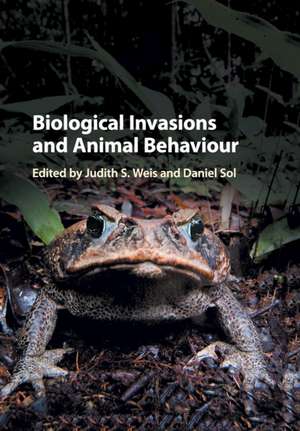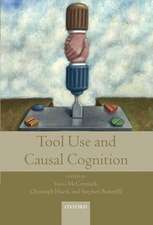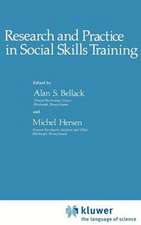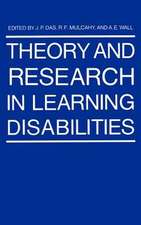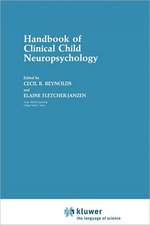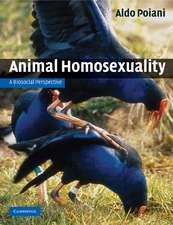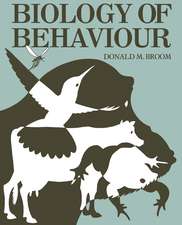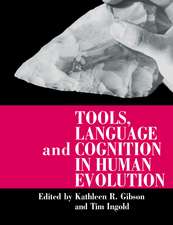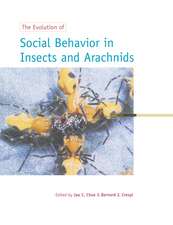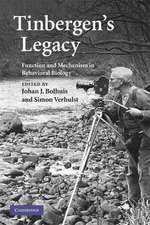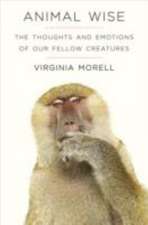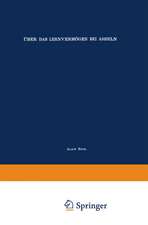Biological Invasions and Animal Behaviour
Editat de Judith S. Weis, Daniel Solen Limba Engleză Paperback – 13 noi 2019
| Toate formatele și edițiile | Preț | Express |
|---|---|---|
| Paperback (1) | 406.16 lei 6-8 săpt. | |
| Cambridge University Press – 13 noi 2019 | 406.16 lei 6-8 săpt. | |
| Hardback (1) | 651.25 lei 6-8 săpt. | |
| Cambridge University Press – 12 oct 2016 | 651.25 lei 6-8 săpt. |
Preț: 406.16 lei
Nou
Puncte Express: 609
Preț estimativ în valută:
77.72€ • 81.15$ • 64.18£
77.72€ • 81.15$ • 64.18£
Carte tipărită la comandă
Livrare economică 15-29 aprilie
Preluare comenzi: 021 569.72.76
Specificații
ISBN-13: 9781107434714
ISBN-10: 1107434718
Pagini: 365
Dimensiuni: 243 x 170 x 20 mm
Greutate: 0.58 kg
Editura: Cambridge University Press
Colecția Cambridge University Press
Locul publicării:New York, United States
ISBN-10: 1107434718
Pagini: 365
Dimensiuni: 243 x 170 x 20 mm
Greutate: 0.58 kg
Editura: Cambridge University Press
Colecția Cambridge University Press
Locul publicării:New York, United States
Cuprins
1. Introduction Andrew V. Suarez and Phillip Cassey; Part I. Behaviour and the Invasion Process: 2. The role of behavioural variation and behavioural syndromes across different stages of the introduction process David G. Chapple and Bob B. M. Wong; 3. Invading new environments: a mechanistic framework linking motor diversity and cognitive processes to invasion success Andrea S. Griffin, D. Guez, I. Federspiel, Marie Diquelou and F. Lermite; 4. Invader endocrinology: the regulation of a pesky phenotype Lynn B. Martin, Amber J. Brace, Holly J. Kilvitis and Stephanie S. Gervasi; 5. Life history, behaviour and the establishment in novel environments Daniel Sol and Joan Maspons; 6. Behaviour on invasion fronts, and the behaviour of invasion fronts Ben L. Phillips; 7. The role of dispersal behaviour and personality in post-establishment spread Jennifer S. Rehage, Julien Cote and Andrew Sih; Part II. Behavioural Interactions between Invaders and Native Species: 8. Invasive plants as novel food resources: the pollinators' perspective Ignasi Bartomeus, Jochen Fründ and Neal M. Williams; 9. In the light of introduction: importance of introduced populations for the study of brood parasite-host coevolution Tomáš Grim and Bård G. Stokke; 10. Flight behaviour of an introduced parasite affects its Galapagos Island hosts: Philornis downsi and Darwin's finches Sonia Kleindorfer, Katherina Peters, Leon Hohl and Frank Sulloway; 11. Eat or be eaten: invasion and predation in aquatic ecosystems Judith S. Weis; 12. Evolutionary novelty and the behaviour of introduced predators Edwin D. Grosholz and Elizabeth H. Wells; Part III. Case Studies: 13. Behaviours mediating ant invasions Jules Silverman and Grzegorz Buczkowski; 14. Invasions by mosquitoes: the roles of behaviour across the life cycle Steven A. Juliano and L. Philip Lounibus; 15. How behaviour contributes to the success of an invasive poeciliid fish: the Trinidadian guppy (Poecilia reticulata) as a model species Amy E. Deacon and Anne E. Magurran; 16. How behaviour has helped invasive crayfish to conquer freshwater ecosystems Elena Tricarico and Laura Aquiloni; 17. Behaviours of Pacific lionfish facilitate invasion of the Atlantic Mark A. Albins; 18. Wildlife trade, behaviour and avian invasions Martina Carrete and José L. Tella; Index.
Recenzii
'[We] recommend this book to readers at the graduate level or above … We particularly recommend it to researchers who are looking for open avenues of research in invasive behavior to explore. … a diverse set of researchers will benefit from reading this timely, comprehensive overview of the behaviors that characterize invasive species.' Angela Chuang and Jordan M. Bush, Biol Invasions
'This is a valuable resource for behavioral ecology, conservation biology, and the science of invasions.' J. Berger, Choice
'This volume will be a good reference for graduate students or new researchers in invasion biology, as it points out main directions for unifying behavioral and ecological theory, and defines gaps in this growing field.' Cinnamon Mittan, The Quarterly Review of Biology
'The articles are pacy, informative, cross-referenced with current literature and highly relevant to local and international events … inevitably, a book of this quality carries a hefty price tag but to those working in behavioural and evolutionary ecology and biological invasions, I expect it will be worth it.' Stephen Hoskins, The Biologist
'… this book provides a thorough review of animal behaviour at all stages of biological invasion, providing the reader with case-studies, and offers exciting avenues for research in evolutionary biology and behavioural ecology. Furthermore, it provides applied insights valuable to wildlife management and conservation issues. A great read for students interested in the ecology and behaviour of invasive species.' Kristin Thompson, International Society for Behavioral Ecology Newsletter
'This is a valuable resource for behavioral ecology, conservation biology, and the science of invasions.' J. Berger, Choice
'This volume will be a good reference for graduate students or new researchers in invasion biology, as it points out main directions for unifying behavioral and ecological theory, and defines gaps in this growing field.' Cinnamon Mittan, The Quarterly Review of Biology
'The articles are pacy, informative, cross-referenced with current literature and highly relevant to local and international events … inevitably, a book of this quality carries a hefty price tag but to those working in behavioural and evolutionary ecology and biological invasions, I expect it will be worth it.' Stephen Hoskins, The Biologist
'… this book provides a thorough review of animal behaviour at all stages of biological invasion, providing the reader with case-studies, and offers exciting avenues for research in evolutionary biology and behavioural ecology. Furthermore, it provides applied insights valuable to wildlife management and conservation issues. A great read for students interested in the ecology and behaviour of invasive species.' Kristin Thompson, International Society for Behavioral Ecology Newsletter
Descriere
This book provides a comprehensive look at the critical role of animal behaviour in the success and impact of biological invasions.
